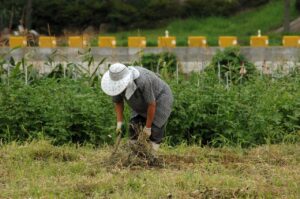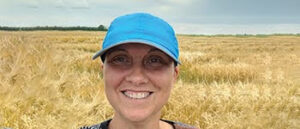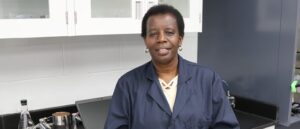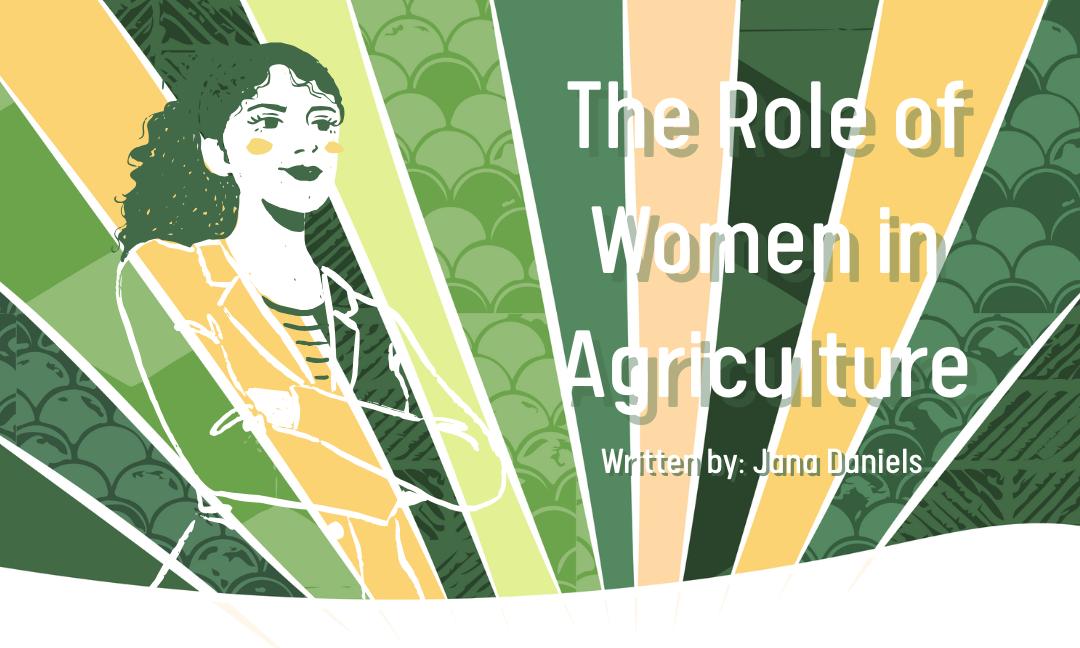Written by: Jana Daniels
Edited by: Alishba Khursheed
Designed by: Andria Sahar
Published by: Andrew Jackson
Women have always been involved in farming and agriculture, even if their work has historically been classified as “female work,” such as financial management or caring for small animals. But things are shifting on the farm. More women than ever are stepping into roles that have been more traditionally done by men, shattering barriers, and bringing fresh, innovative ideas to the table.

That change is reflected in the numbers. As of 2021, nearly 80,000 women were farm operators, according to Statistics Canada—about 30% of all farm operators, up from 28% in 2016. Here’s the surprising twist: this is the first increase in female farmers since 1991. What caused it? A surge in “one-operator” female farmers—women who run their farms independently—and more women taking the lead in large-scale farming operations. Ontario, in particular, stands out, with over a quarter of Canada’s female farmers.
Women entering farming marks a crucial shift—not just in numbers, but in attitudes. With the world more open than ever to diversity, women are not only claiming their place in agriculture, but also transforming how farming works.
Women have contributed tremendously to our food systems. There have been countless inventions, scientific breakthroughs, and new agricultural methods introduced by brilliant women across Canada. A couple of these women include:
 Dr. Ana Badea
Dr. Ana Badea
Dr. Ana Badea developed a passion for agriculture at an early age while growing up in Romania and was significantly impacted by the farming environment and direct exposure to agricultural practices. Dr. Ana’s passion for botany prompted her to pursue tertiary education in agricultural science, leading to the choice of pursuing a career dedicated to crop development and food safety.
After moving to Canada, Dr. Badea spent eight years at Agriculture and Agri-Food Canada (AAFC) in Lethbridge, Alberta, developing plant breeding capacity. She moved to the Brandon Research and Development Centre (RDC) in Manitoba, where she now leads innovative research in barley breeding and genetics.
Dr. Badea at Brandon RDC is breeding new barley cultivars with improved traits such as drought tolerance, disease resistance, and yield potential. She uses both classical crossbreeding techniques and the newest molecular tools such as marker-assisted selection and genomic analysis to accelerate the breeding process and develop genetic diversity. With her work, she is helping to create barley crops that are more resilient to climate change and will be better suited to meet the needs of both farmers and brewers.
Dr. Badea’s research spans the laboratory and fields. Her research makes Canada’s agriculture more sustainable and food systems more resilient. She is also a pioneering woman scientist in a historically male-dominated field, and a sorely needed role model for women scientists in agricultural research, introducing diversity, mentorship, and innovation to science.
 Dr. Judith Nyiraneza
Dr. Judith Nyiraneza
Nyiraneza knew she wanted to study agriculture as early as high school. She earned a bachelor’s degree in agricultural sciences, followed by postgraduate studies in soil science and crop nutrient management. She co-coordinated a project using the Living Lab approach to develop sustainable soil practices in collaboration with PEI farmers and scientists. More recently, she led a major Agricultural Climate Solutions project aimed at sequestering carbon in soil and reducing greenhouse gas emissions in agriculture.
 Although women have made—and continue to make—important strides in agriculture, they still face many challenges. Understanding these barriers helps us appreciate the perseverance and dedication that female farmers demonstrate. Allison J. Squires, a farmer herself, speaks to this reality.
Although women have made—and continue to make—important strides in agriculture, they still face many challenges. Understanding these barriers helps us appreciate the perseverance and dedication that female farmers demonstrate. Allison J. Squires, a farmer herself, speaks to this reality.
In her article Challenges and Opportunities: My Perspective as a Woman Working in Organic Agriculture for Choose Canada Organic, Squires notes that “71% of all males who make up the total farm population self-identify as farm operators… only 29% [of female farmers] identify as farm operators.” She highlights several challenges faced by Canadian women in agriculture, including limited childcare, poor access to healthcare, and discrimination.
Thankfully, society is evolving. People are increasingly free to pursue paths beyond traditional gender roles. Squires also points out that, compared to many other countries, Canada is advanced both economically and socially. Still, she hopes more women will enter agriculture and experience the fulfillment she has found in her own journey.
Change is rarely easy. Being one of the few in any field can be daunting. But doing what you love—and following your passion—is deeply rewarding. While women in agriculture may not have always been the norm, that doesn’t mean it can’t become one. It’s incredible to see so many strong women stepping up to the plow, the field, and the lab to leave their mark on agriculture.
Resources:
- https://www.google.com/url?sa=t&source=web&rct=j&opi=89978449&url=https://www.dal.ca/faculty/agriculture/news-events/news/2019/04/23/women_in_agriculture__shattering_the_glass_ceiling.html&ved=2ahUKEwidy4L-l-mLAxUHwOYEHYQ5Km8QFnoECCwQAQ&usg=AOvVaw0L9nhnYfB1UfcUlQ8PgcsD
- https://www.agwomen.ca/introducing-your-2023-influential-women-in-canadian-agriculture/
- https://agriculture.canada.ca/en/agri-info/two-aafc-scientists-top-canadas-2023-list-influential-women-agriculture
- https://www.google.com/url?sa=t&source=web&rct=j&opi=89978449&url=https://choosecanadaorganic.ca/challenges-and-opportunities-my-perspective-as-a-woman-working-in-organic-agriculture/&ved=2ahUKEwjtwre4mOmLAxWGOTQIHe4NDHEQFnoECCwQAQ&usg=AOvVaw2xZl74OoHhe6nigEl7kAUh
Images:

